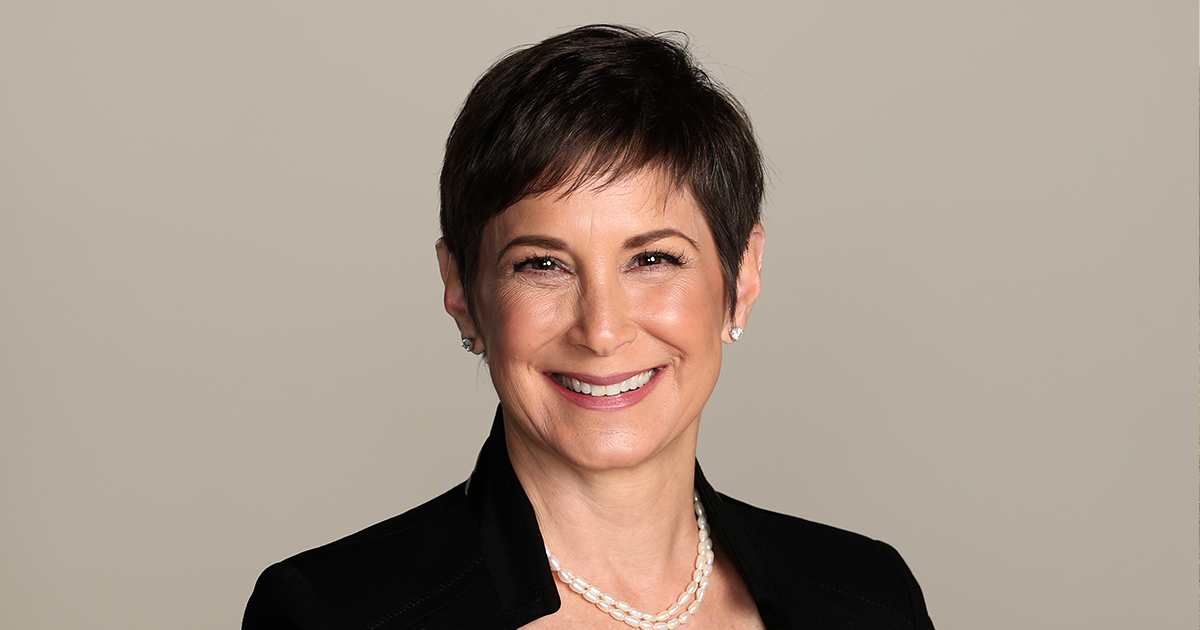
Even in regions where healthcare delivery mechanisms are abundant, demand can be overwhelming while other healthcare operational challenges interfere with patient outcomes.
As the digital transformation in healthcare lags behind other industries and value-based care drives provider efficiencies while the government invests in healthcare cost reduction and access measures, health tech is positively overripe for disruption.
“The companies and startups that are solving challenges for healthcare customers ultimately improve the ecosystem in a meaningful way by making it easy to buy, implement and use technology,” said Sally Frank, worldwide lead of health and life science at Microsoft for Startups.
For her HIMSS24 Views from the Top Session, Digital Health startups: Harnessing Innovation to Disrupt and Improve Care Delivery, Frank told Healthcare IT News how the conversation can provide attendees with insights into how successful startups fuel investment and how unicorns grow and scale.
Joining her are leaders two startups at opposite ends of the growth journey, as well as voices from a digitally savvy health system and experienced funder:
- Abhinav Shashank, chief executive officer and co-founder at Innovaccer
- Mary Beth Chalk, cofounder and chief commercial officer at BeeKeeperAI
- Robbie Freeman, digital experience and chief nursing informatics officer at Mount Sinai
- Michael Greeley, cofounder and general partner at Flare Capital Partners
“Their individual perspectives, as well as their abilities to riff off of each other, are what I think is most exciting about the session,” she said.
Separating wheat from chaff
“A true market maker looks at the ecosystem and where they fit in it,” Frank said, noting that they gain an edge when they look at the often-overlooked pain points.
“They understand their customers and they understand the fact that they need to not completely upset the workflow.”
Shashank, who was named to Forbes’ 30 Under 30 2017: Enterprise Asia, and the company he co-founded launched a unified patient record as a proprietary model, which collects patient data across healthcare experiences and serves it up to care teams, in 2020.
Quickly thereafter, the now-Unicorn status startup unveiled its FHIR-enabled Data Activation Platform. FHIR – which the 21st Century Cures Act promotes as the foundational standard to support data exchange in healthcare – is still an item to be tackled on the government’s interoperability roadmap.
Then last year, Innovaccer harnessed generative artificial intelligence – which Frank said is the technology that will have the greatest transformational impact over the next couple of years – and launched the genAI assistant Sara. Recently, the company fully acquired Cured, a digital marketing and customer relationship management platform.
“I think it’s become a rallying cry that AI copilots will assist clinicians, but not overtake them,” said Frank. “No amount of analytics or anything else is going to be able to replace the keen eye of a clinician,” she noted.
BeekeeperAI, which will be part of the Microsoft booth and is part of Frank’s Pegasus portfolio of startups, uses an “Azure confidential ledger to create an immutable record of AI/machine learning artifacts from computing cycles,” Chalk explained on LinkedIn.
The company’s zero trust platform encrypts protected data at rest, in transit and as it is processed by algorithms to accelerate AI adoption in healthcare. In late 2020, the University of California San Francisco and partners, including Microsoft, began developing the platform to reduce the time and cost associated with creating secure clinical-grade AI algorithms.
At the time, UCSF said the BeeKeeperAI platform would crunch the development of clinical algorithms from 30 months to one day.
Market makers – like Innovaccer and BeekeeperAI – “solve a problem that people are willing to pay for, at a minimum” Frank explained.
They also need to be integrated with existing healthcare systems, have “a strong, well-articulated, meaningful value proposition” and understand the regulatory journey, she added.
“Because we all know that our providers are overwhelmed, they don’t need another system. So, point solutions are not ideal.”
What works, and what doesn’t
At HIMSS24, those who are already in the throes of their startup and are beginning to scale can hear from Shashank about what that looks like, said Frank.
For example, “How do you make decisions on really scaling in a massive way that you go from $20 million or $50 million into a billion dollars in valuation?” she suggested.
Session attendees will also catch Freeman’s insights on the mindset of healthcare customers, while Greeley, who has funded companies at BeekeeperAI’s stage and others like Innovaccer that have achieved unicorn status, can advise on what the due diligence process looks like. Frank noted he is an expert on what separates those startups who get funded from those who don’t.
“It is the diversity of the perspectives of the journeys that they’ve been through and what they’ve seen that has worked and what doesn’t work,” said Frank.
The HIMSS24 Views From The Top session, “Digital Health startups: Harnessing Innovation to Disrupt and Improve Care Delivery,” is scheduled for March 12, noon-1 p.m. in Room W224E. Learn more and register.
Andrea Fox is senior editor of Healthcare IT News.
Email: [email protected]
Healthcare IT News is a HIMSS Media publication.
